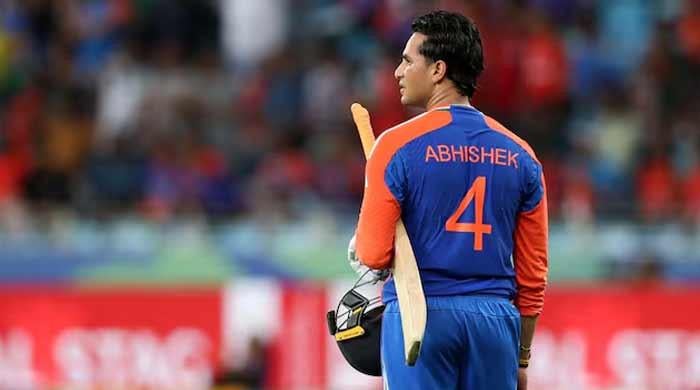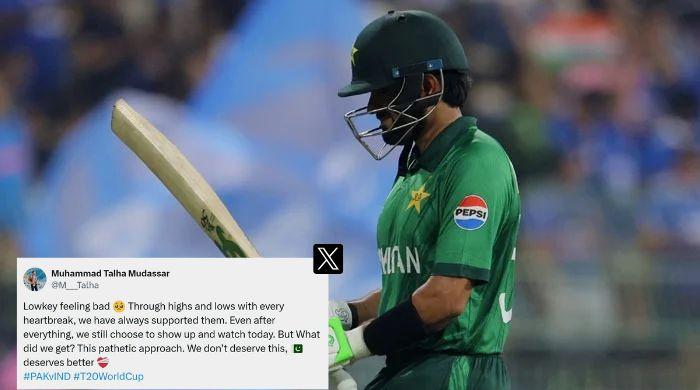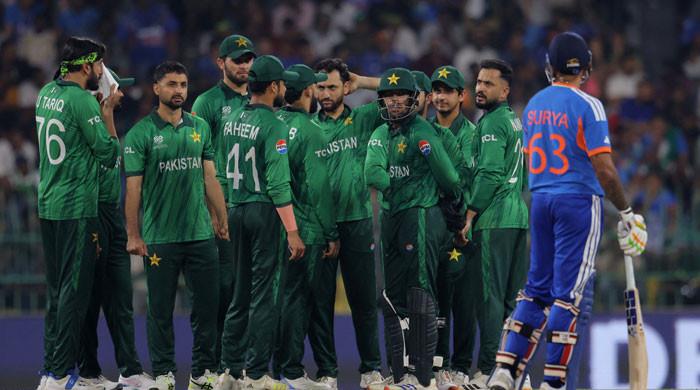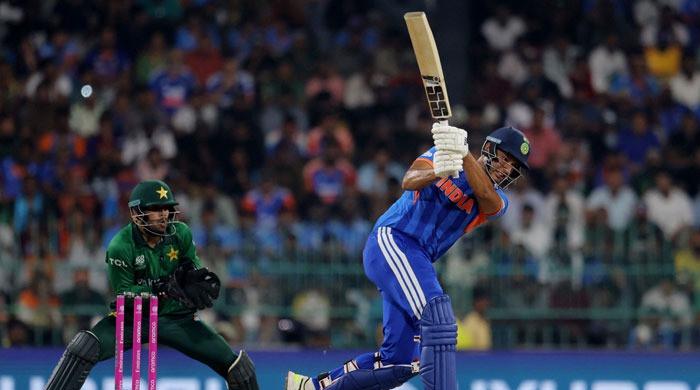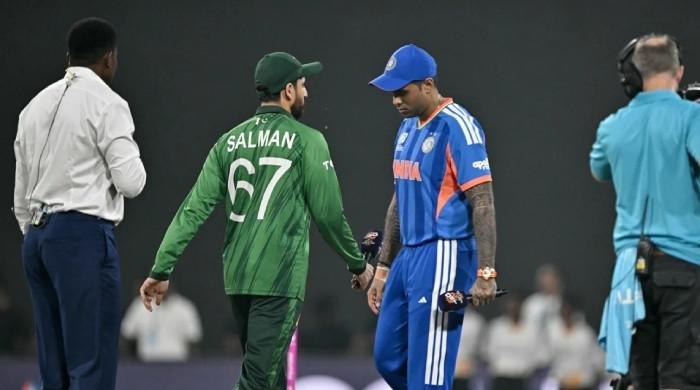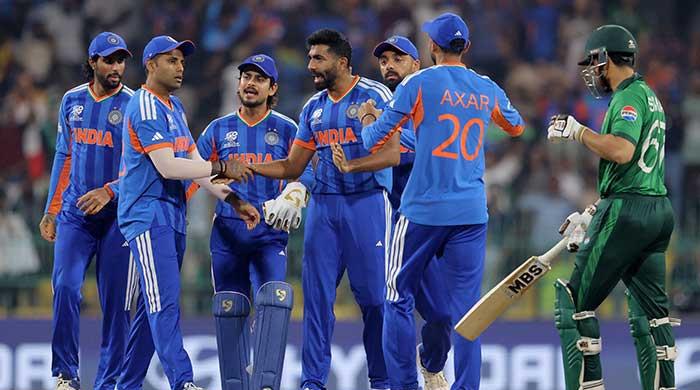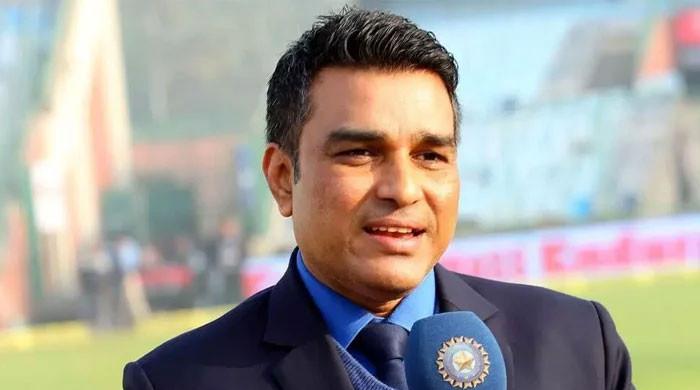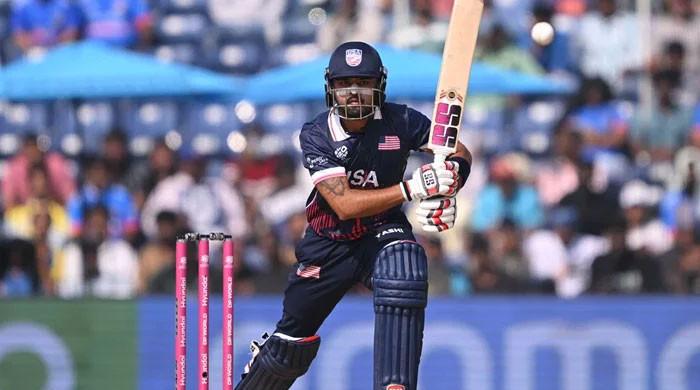Last minute recruits in Qatar highlight World Cup security issues
The small Gulf state has trained more than 50,000 people to provide security for an expected wave of 1.2 million visitors from around the world
November 19, 2022
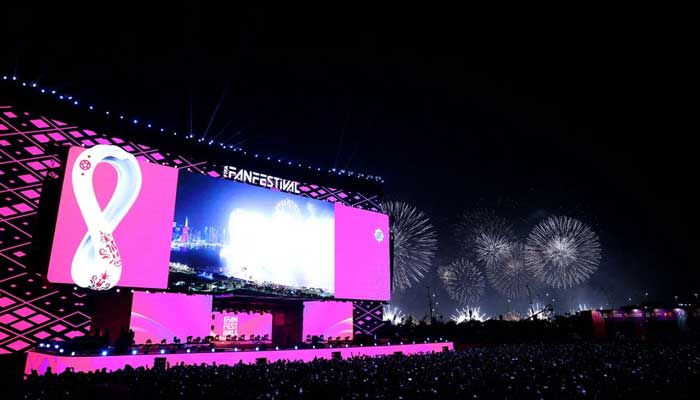
- Qatar's tournament security committee hired hundreds of men to work as security guards.
- According to one of guards, recruits received training for up to 10 hours a day.
- Qatar faced a shortage of personnel as it gears up for month-long FIFA tournament.
DOHA: Less than three weeks before the World Cup, Qatar's tournament security committee hired hundreds of men, some with no experience, to work as security guards tasked with crowd observation inside stadiums, two of the recruits told Reuters.
The men from countries such as India, Pakistan, Bangladesh, Sudan and Indonesia attended theoretical training at Qatar's police college in early November, received uniforms and were deployed to stadium training sessions for the first time just days ahead of one of the world's biggest sporting events.
Some of the recruits had security backgrounds, but there were also day labourers, drivers and office workers, one of the recruits said.
The last-minute preparations highlight the logistics challenges Qatar has faced in the run-up to Sunday's kick-off. The small Gulf state has trained more than 50,000 people to provide security for an expected wave of 1.2 million visitors from around the world.
According to one of the guards, recruits received training for up to 10 hours a day on potential crowd control issues, including how to deal with drunk people.
"We talk to them to understand their health condition. If he is okay to walk, we send him on his way. If not, paramedic teams take over," said the guard, who is tasked with observing 50-100 people in a section in the stands, not close to the pitch.
He estimates more than 1,200 people were recruited in his cohort — all residents of Qatar.
With a population of 3 million - of which around 12% are Qatari nationals —Qatar faced a shortage of personnel as it gears up for the month-long FIFA tournament.
Qatar is the first Middle Eastern country and the smallest nation ever to host the World Cup. While it has spent billions of dollars on infrastructure, it has never organised an event on such a scale - which unusually for a World Cup will also be held in or around a single city.
It has called up hundreds of civilians, including diplomats summoned back from overseas, for mandatory military service operating security checkpoints at World Cup sites.
LABOUR REFORMS
Qatar already hosts tens of thousands of workers employed as security guards outside government buildings, university campuses and shopping complexes.
In the lead-up to kick-off, rights group Amnesty International said security guards were working long hours for months on end without a day off.
Qatar has introduced labour reforms over the last decade including limits on working hours, particularly during the heat, but says more needs to be done.
The two recruits, who spoke on condition of anonymity, said they were surprised to have been hired just weeks before the tournament.
Seven out of the eight World Cup stadiums are brand new and have rarely experienced large crowds.
Lusail Stadium, with a capacity of 80,000, will host the final on Dec. 18. It has only held one large test event, with a crowd of nearly 78,000.
The guards, who heard about the jobs through word of mouth and were interviewed in late October, will monitor sections inside the stadiums and report any trouble to supervisors.
Any serious problems will be handed to a "special force".
Neither the Qatari government nor the Supreme Committee for Delivery and Legacy, Qatar's World Cup organisers, responded to a request for comment.
"In terms of preparations, since 2010 the Qatari security and police authorities have been present at all major football events and Olympic Games," said a FIFA spokesperson.
"And there have been extensive, internationally accredited training programmes implemented in relation to key matters such as crowd safety and control, security and risk management, and emergency response to serious accidents."
The second guard said the recruits cannot intervene if there is a physical fight and are not empowered to arrest people.
"We will not intervene in any kind of emergency situation. There is already other forces for that. Our job is only to monitor and report," he said.




